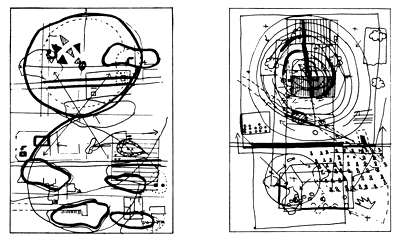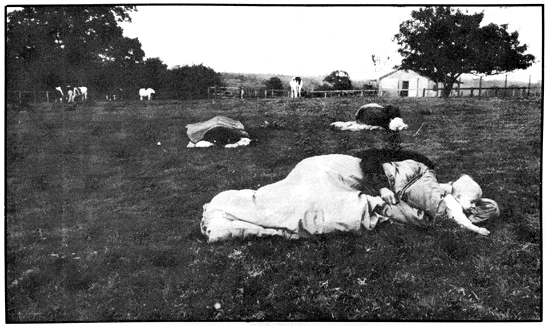
Eva Heisler lives in upstate New York where she works nights on the children's ward of a psychiatric hospital. Poems have appeared, or are forthcoming, in
Ironwood, Kansas Quarterly, Montana Review, Sonora Review,
and
The Women's Review of Books. go to this issue's table of contents
![]()
![]()
![]() Letter to the house (II):
Letter to the house (II):
![]()
![]() or why she would write
anyway,
for the smell
or why she would write
anyway,
for the smell
![]() that was on her grandmother's hands inside the house
that was on her grandmother's hands inside the house
![]() (and you, them). And so it is
(and you, them). And so it is
![]() behind the winter there was this dowry-- and quickly
behind the winter there was this dowry-- and quickly
![]() it went,
and
full. The first word
it went,
and
full. The first word
![]() of that ghost behind the winter she repeats on the paper, repeats until the paper repeats:
of that ghost behind the winter she repeats on the paper, repeats until the paper repeats:
![]() "There is earth in this air"-- and ice, and why don't
"There is earth in this air"-- and ice, and why don't
![]() the windows stray. It is because, because
the windows stray. It is because, because
![]() her breathing grows faces, because: under the sink
her breathing grows faces, because: under the sink
![]() there are buckets, small ones, filled with water-- and
there are buckets, small ones, filled with water-- and
![]() it might as well be said: she wants them some place
it might as well be said: she wants them some place
![]() else, and she wants the house (you) to answer
else, and she wants the house (you) to answer
![]() for her, and she wants the smell of that soap, and
for her, and she wants the smell of that soap, and
![]() she wants it cold.
she wants it cold.
![]()
![]()
![]()
![]() Yellow Flag
Yellow Flag
![]()
![]() The woman
The woman
![]() holds
holds
![]()
![]() a moon-plant.
a moon-plant.
![]() She might as well
She might as well
![]()
![]() be lost. The lights
be lost. The lights
![]() of a distant city
of a distant city
![]()
![]() reveal the way
reveal the way
![]() she will not go.
she will not go.
![]()
![]() The landscape--
The landscape--
![]() a black star--
a black star--
![]()
![]() is not hers.
is not hers.
![]() Hands
Hands
![]()
![]() hang from windows
hang from windows
![]() over the red
over the red
![]()
![]() mud, this
mud, this
![]() desire. This
desire. This
![]()
![]() asylum, hungry
asylum, hungry
![]() star,
star,
![]()
![]() gathers the urges
gathers the urges
![]() that were hers.
that were hers.
![]()
![]() The End of Part One
The End of Part One
![]()
![]() She didn't want to meet. She didn't want to sail. She
She didn't want to meet. She didn't want to sail. She
![]() didn't want to turn. She didn't want to branch. She
didn't want to turn. She didn't want to branch. She
![]() didn't want to rip. She didn't want stem, planks, inside
didn't want to rip. She didn't want stem, planks, inside
![]() a moth. She didn't want to speak. She didn't want to
a moth. She didn't want to speak. She didn't want to
![]() light the lamps. She didn't want to see the albums. She
light the lamps. She didn't want to see the albums. She
![]() didn't want to undress. She didn't want to dress. She
didn't want to undress. She didn't want to dress. She
![]() didn't want to loosen the sheet, and it was tight. It was
didn't want to loosen the sheet, and it was tight. It was
![]() blank, it was black, and it wound the room, the day,
blank, it was black, and it wound the room, the day,
![]() voice. She didn't want to see. She didn't want to sleep.
voice. She didn't want to see. She didn't want to sleep.
![]() She didn't want to scrub the pines. She didn't want a
She didn't want to scrub the pines. She didn't want a
![]() blanket. She didn't want a shovel. She didn't want to
blanket. She didn't want a shovel. She didn't want to
![]() open the box. She didn't want a comb, feather, step,
open the box. She didn't want a comb, feather, step,
![]() sound, tent.
sound, tent.![]()
![]()

![]()
![]()